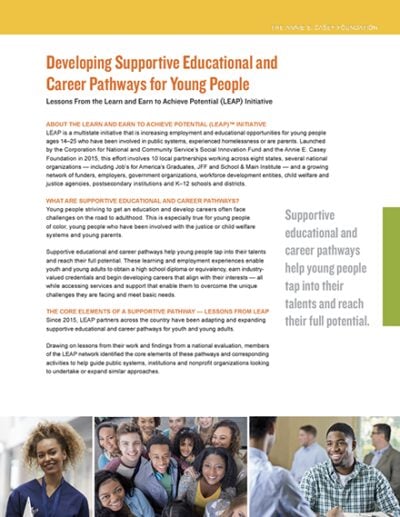Young People Require Comprehensive Support Services
Addressing barriers such as housing, transportation, child care and financial needs is essential for enabling young people to access educational and work-related opportunities effectively.

The Annie E. Casey Foundation’s Learn and Earn to Achieve Potential (LEAP)™ initiative aims to improve educational and employment for young people, particularly those who have experienced foster care, justice system involvement or homelessness. Through collaboration with local organizations, LEAP helps youth gain the skills and support necessary to achieve long-term success.
This report outlines strategies that LEAP has employed and shares lessons learned to help guide public systems and organizations looking to provide similar support.
Key LEAP strategies include:
By implementing these strategies, systems, organizations and communities can create an equitable, supportive environment that helps young people tap into their talents and realize their full potential.
Creating equitable and youth-centered educational and career pathways requires addressing systemic barriers, meeting young people’s holistic needs and fostering collaborative, flexible support systems. These efforts empower youth, particularly those facing significant challenges, to achieve meaningful educational and economic outcomes.